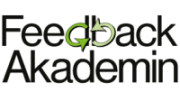Feedback is an important tool for group development. Feedback is like taking the elevator up to a higher performance!
How important is a good cooperation in your work place? How far has your group reached in group development? According to researcher Susan Wheelan, 50 % of all groups find themselves in the beginning phases – phase 1 (belonging & safety) or phase 2 (opposition & conflict) – see the model below.
Research shows that groups who have reached phase 3 (trust & structure) or phase 4 (work & productivity) are more efficient and fruitful than corresponding groups that are in phase 1 or 2. Then it’s also more developing and fun to be part of a phase 3 or phase 4 group. Unfortunately only 20 % of all groups reach phase 4 without help. We see therefore that the knowledge of group development is an important part in leadership and co-workership.
Therefore, the following question is crucial for a successful organization:
How is it possible for a group of people to coordinate their thoughts and actions to collective prestations?
Eric Olsson, professor in social working – Högskolan in Kristianstad
We know by experience that an investment in a form of group development gives the group a higher possibility to reach phase 3 and 4, than to passively “wait” for a group to develop itself.
There are many models that describe the development of a group, from the group’s creation to its decomposition. We use Susan Wheelan’s IMGD (Integrative Model of Group Development), (that is partially based on Tuckmans’ model – Forming, Storming, Norming, Performing, Adjourning).
The reason to why we chose the model of Wheelan and why we are also certified in the tool GDQ (Group Development Questionnaire) is that Wheelan’s model is based on thorough research. GDQ is a tool used to find out in what phase a group is and with that base it offers an efficient method to develop teams, work- and manager groups.
Wheelan describes 4 maturity phases in the development of a group. Simply put, a group is seen to be in the phase where its main focus lies.
Feedback Academy can, through use of the GDQ-tool, see the group’s current position and what the group needs, to take the next step in their development. Based on this, we can then train the group in the skills of feedback. We also know that the need of feedback differs in the different phases. The advantage of GDQ and feedback is that it’s not just the managers/leaders that get access to the tools of feedback, it is all group members. In the group, an awareness of the current state is raised and also for what is needed for continued development. As Wheelan’s model has a group focus, it is easier for the members to see that the things happening in the group are not based on the shortcomings of the individuals but it’s a result of the phase in which the group finds itself.
One part of our method is to create awareness about the group’s development and the cultural differences (might for example be ethnical cultures or company cultures). When the members of the group are aware about what is happening they can start, as a whole, to take responsibility for their development. This is one of the keys when it comes to team building, group development and management team development.
The difference between a group and a team is by some defined: a team has a closer cooperation to reach a certain result or to deliver something. A team is in some cases time limited. In a group, the focus does not lie on creating a common delivery/product. A group is often a department or a unit. Even if cooperation is important in both categories, teams often suffer more if the cooperation isn’t working well.
If you want to learn more about group development/team building and feedback you are welcome to call or mail us. These topics are also valid for management team groups. Many management groups have been working together for many years but never had the time to work on their relationships. Therefor, an unnecessary amount of leader groups are in phase 2. There are great things to earn from using feedback when it comes to manager group development.
We have a great experience of group development and multi cultural groups. Since 2011 we’ve had many exciting and successful assignments to develop multi cultural groups.
When we work with conflict management, the group is almost always in phase 2.
